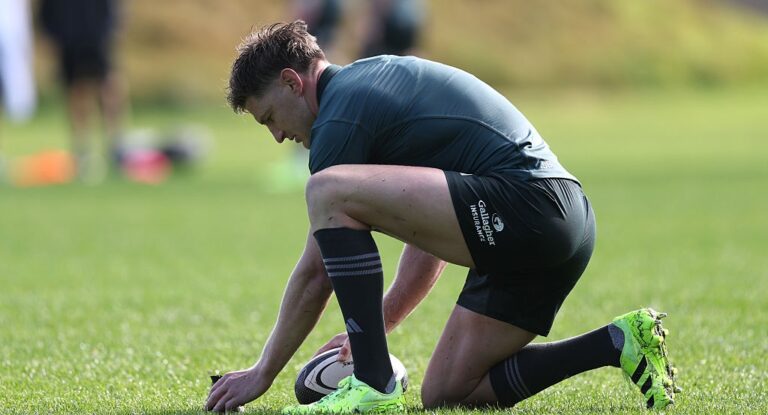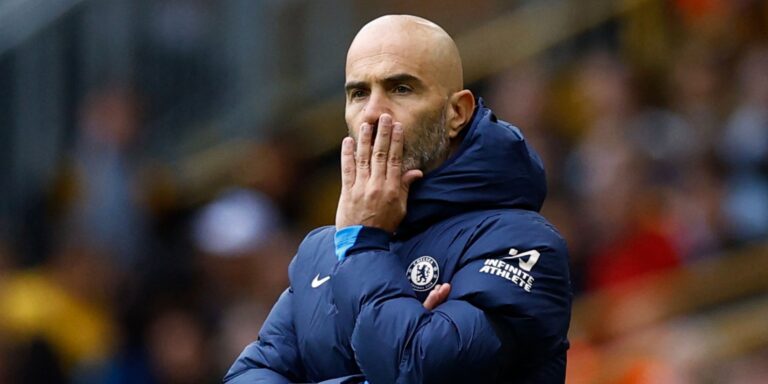
If despondent English rugby fans were hoping for some early festive season cheer this weekend, they might be disappointed. The Champions Cup kicks off on Friday but there is little expectation that any of the eight Premiership clubs taking part will be embarking on a title winning campaign.
According to various bookmakers there are five clear frontrunners. They include perennial winners Toulouse, perennial bridesmaids Leinster, Ronan O’Gara’s meaty La Rochelle, the rampaging Bulls and the swashbuckling Bordeaux, who on their day can cut any defence to shreds. Add in the heft of the Sharks from Durban, with their 18 Springboks, as well as the URC champions Glasgow Warriors, and there is a pyramid that has English clubs craning their necks for a glimpse of the summit.
It wasn’t always like this. Between 2016 and 2020, English clubs won four of the five Champions Cups on offer. Between 2000 and 2004 it was four out of five as well. What happened?
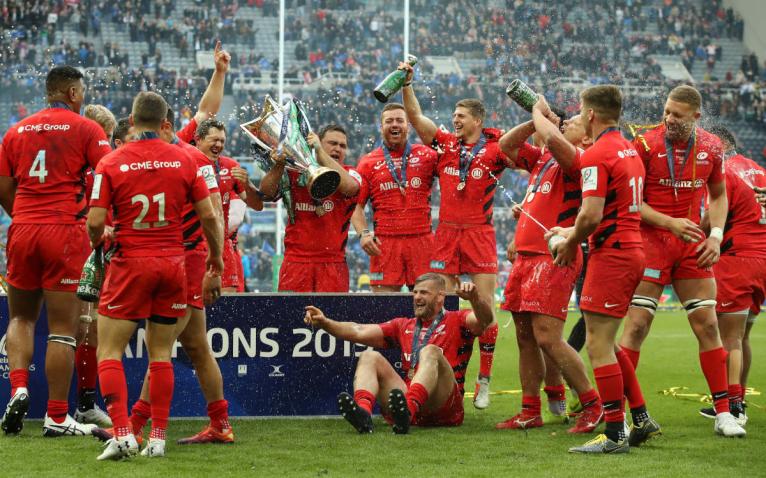
Simply put, it is the absence of dynasties on the home front that has led to a drought abroad. Previously English teams didn’t just win trophies, they claimed pieces of silver as if they owned them by right. These clubs sauntered into competitions with the swagger and expectation of a Roman legion on the march. They came, they saw and, more often than not, they conquered. Sometimes with intricate patterns, often with brute strength, but always with an assuredness that there could be no other outcome.
In the early 2000s it was Leicester and Wasps who bossed their ecosystem, winning a respective four and three domestic titles on the bounce. This translated to continental glories with the Tigers winning back-to-back European Cups in 2001 and 2002 before Wasps first triumphed in 2004 and then again in 2007.
In 2011 we saw the emergence of Saracens as a superpower. They won their first Premiership crown that year and would then sweep four of the next five available between 2015 and 2019. In that time they also bagged a trio of European Cups with Exeter Chiefs taking home one of their own in 2020.
There is no question that English top-flight rugby provides great entertainment. There is something intriguing, romantic even, in the fact that we’ve had five different champions in each of the last five seasons.
Now not a single English club can claim supremacy over their local rivals. Apart from Exeter, who are winless after seven matches, every other side has shown this season that they can pull off a result on their day. Newcastle have beaten Saracens. Bristol lost at home to Gloucester but managed to clear the early pacesetters Bath by 10 points on the road. The reigning champions Northampton are down in eighth. Nine points separates first from fifth. Harlequins in seventh are one win away from the play-off spots.
This is encouraging news for those responsible for marketing the Premiership. And there is no question that English top-flight rugby provides great entertainment. There is something intriguing, romantic even, in the fact that we’ve had five different champions in each of the last five seasons. And with Bath and Bristol locked on 29 points at the top of the table, we could potentially see a sixth new winner next year.
Let’s contrast this with the other two leagues that supply teams for the Champions Cup. Leinster, Glasgow and the Bulls currently occupy the top three spots in the United Rugby Championship and all finished in the top four last season. Toulouse and Bordeaux are first and second in the Top 14 and ended in first and third respectively at the end of the league campaign in 2023/24.
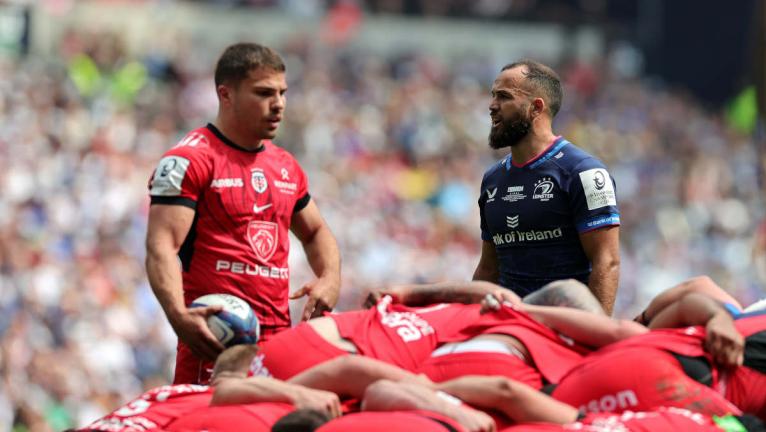
Then again, we shouldn’t be surprised. These are effectively Test teams, or close to them. Ten of Toulouse’s players were part of the most recent French squad for the autumn and are blessed to have Test-quality combinations. Antoine Dupont and Thomas Ramos now have an almost telepathic understanding and when Romain Ntmack returns to fitness Toulouse could have the 9-10-15 French axis at their disposal to go along with the second row pair of Emmanuel Meafou and Thibaud Flament.
Leinster are even more stacked with Irish players and made up a whopping 54% of Andy Farrell’s squad. It’s a similar story at Glasgow where 20 players, including the centre pair of Sione Tuipulotu and Huw Jones, as well as formidable combinations in the front and back row, also feature regularly for Scotland.
There is a more equitable share in the England team with Saracens the most represented club with seven members. And though Maro Itoje and Nick Isiekwe partner up at lock, the rest are often vying for the same place, such as the hookers Jamie George and Theo Dan, and therefore would not necessarily carry over domestic chemistry.
In fact, if we use England’s Test against South Africa as a case study – as it was Steve Borthwick’s last match against a tier-one opponent – a lack of chemistry becomes apparent and could offer an explanation as to why the team has struggled for fluency and consistency.
Of course merely picking larger clumps of players from only a handful of clubs would not solve all of Borthwick’s ills. Other countries, most notably South Africa who select from a range of different leagues, seem to do just fine without ingrained combinations across the park.
Six clubs were represented among the six front-rowers in the match-day 23. Four clubs were represented among the four half-backs. The starting centres play for different clubs. The starting locks play for different clubs. The trio who started in the back row together all play for different clubs.
Of course merely picking larger clumps of players from only a handful of clubs would not solve all of Borthwick’s ills. Other countries, most notably South Africa who select from a range of different leagues, seem to do just fine without ingrained combinations across the park. Even so, it’s easy to see why the England national team is akin to a large combine harvester that takes a while to get going. Perhaps this is why they are such notoriously slow starters in World Cups and Six Nations.
But what choice does Borthwick have? Any coach has a mandate to select the best players available. It’s not his fault that there isn’t a small cohort of clubs that are dominating like they do in France or the URC. And until a single team begins to bully the rest once more, this is a problem that won’t go away which will continue to serve as a detriment to English clubs in Europe and to the England national team. Unfortunately there is no simple solution.
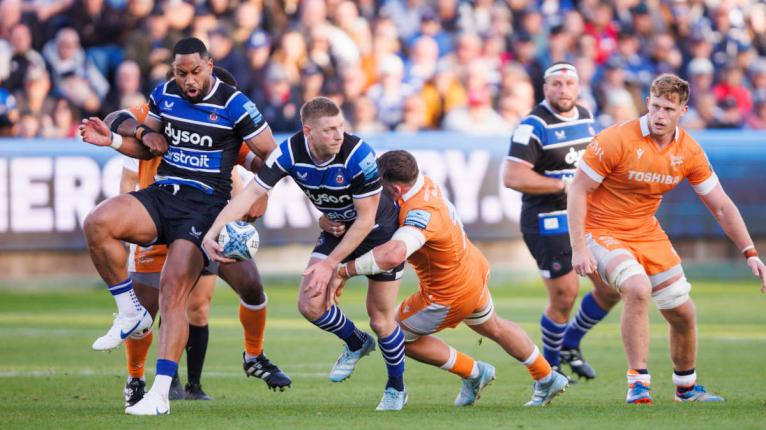
Perhaps the RFU needs more say on where their centrally contracted players play their rugby. But barring a drastic shake-up, that is not going to happen. Besides, no organisation can dictate where an individual chooses to work and live.
Perhaps Borthwick could then steadfastly pick combinations, rather than individual players. Maybe not for must-win games against elite opposition, but against lesser teams. With respect to Italy and Wales, would England be at risk of a loss if an all-Harlequins back row took the field for the sake of continuity?
A new dynasty is needed. Without one, English clubs might become mere bit-part actors with the Test team following a similar route.
Why not chuck someone like Jack Kenningham into the deep end to see if he could swim alongside Chandler Cunningham-South and Alex Dombrandt? Not only would this expose more fringe players to international rugby but it could, down the road, create a club side stacked with Test veterans which in turn could lead to improved results on multiple fronts.
Admittedly, this would hardly be a panacea, but something has to give. A new dynasty is needed. Without one, English clubs might become mere bit-part actors with the Test team following a similar route.


